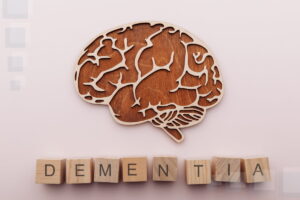

View Topics

There are no treatments that can fight dementia at the moment. Nevertheless, you may avoid or delay the condition by eating a healthy, nutritious diet, training frequently, staying under suggested alcohol restrictions, quitting smoking, and, most importantly, playing specified smartphone games. Lone Star Neurology is here to discuss the 10 best apps for people with…

Dementia is characterised by the degradation of memory, thinking, behavior and ability to perform daily activities. Everyone experiences extreme emotional suffering from time to time; it might be a one-time incident or even depression, which is a strong predictor of dementia. In general, depression is a chronic illness that might last for weeks or months….

Pick’s disease is one of the varieties of senile frontotemporal dementia, in which atrophic changes occur, most often in the frontal and temporal lobes of the brain. In clinical manifestations, it is similar to Alzheimer’s disease, but it is less common and more malignant. In women, it is diagnosed twice as often as in men….

Dementia is a disease in which the cognitive (ability to think) abilities of the patient are impaired. Dementia causes a gradual deterioration in memory, mental abilities, the ability to navigate in time and space, and the ability to recognize people and objects. It happens that dementia turns into Alzheimer’s disease. Alzheimer’s disease is the most…

Amnesia is a disorder of a person’s memory, manifested in the form of a pathological loss of memories of the circumstances of life. Amnestic syndrome remains a common complication of neurological diseases, mental disorders, chronic intoxication, or acute poisoning. Childhood amnesia is common. Most people cannot tell about the events of the first three years…

Getting to Dementia meaning, in general, it affects memory, thinking, and social abilities severely enough to interfere with your daily life. It isn’t a specific disease, but several conditions may cause dementia. Abnormal brain changes lead to disorders sorted under the general term “dementia.” These changes provoke a decline in thinking skills, also known as…

The occasional misplaced key or forgotten appointment might be dismissed as a minor inconvenience. It’s a mere blip in an otherwise sharp memory. However, for many, these experiences can be a cause for concern. It raises questions about the underlying cause of their forgetfulness. Is it simply a natural consequence of aging, or could it…

Many people think that Alzheimer’s disease is the only condition that can lead to dementia. However, several diseases can cause permanent memory loss. Thus, making a diagnosis a significant issue. All of us forget things from time to time. Recall how long you searched for keys or forgot a person’s name, even though they just…